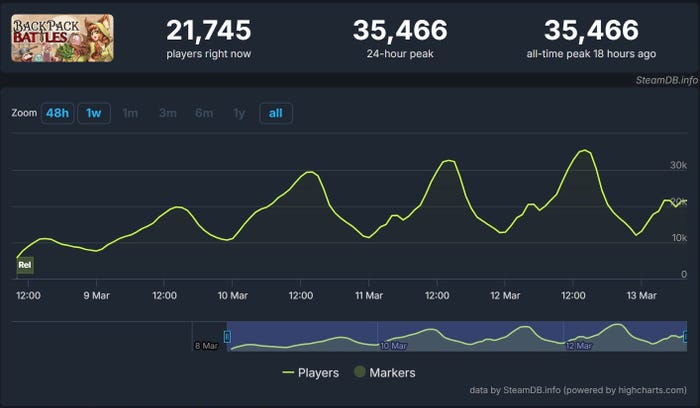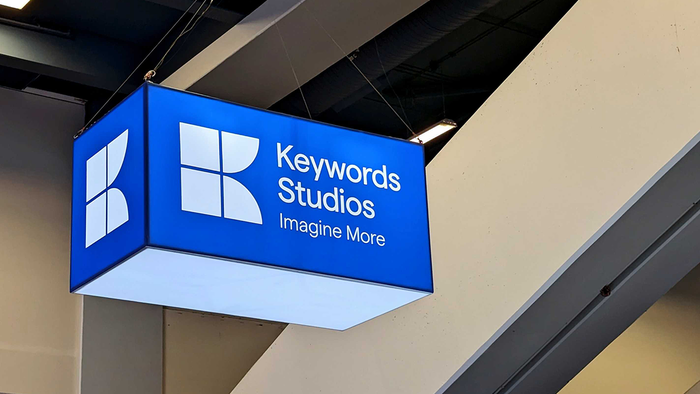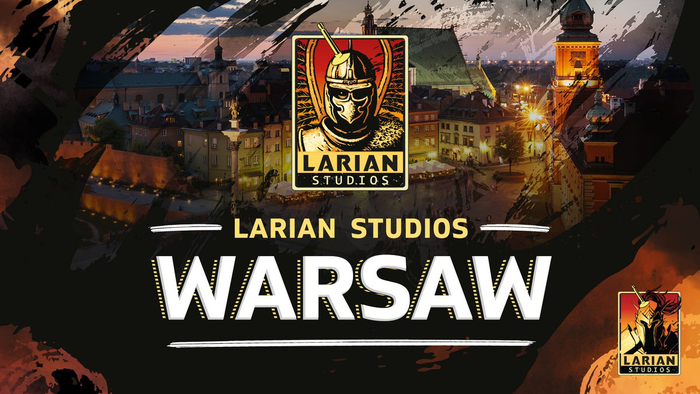
Featured Blog | This community-written post highlights the best of what the game industry has to offer. Read more like it on the Game Developer Blogs.
Embrace the Chaos: How Indie Devs Can Thrive in a Changing and Challenging Market
Yes, the industry is experiencing a shift, but change often breeds opportunity, especially for nimble indie developers.
May 9, 2024
.png?width=850&auto=webp&quality=95&format=jpg&disable=upscale)
The headlines paint a grim picture: layoffs, studio closures, and an uncertain future for the games industry. A recent article by Fast Company cites rising interest rates and a pullback in investment as key factors. These economic pressures are impacting both large and small studios alike. But wait! Before you hit the panic button, let's reframe this narrative. Yes, the industry is experiencing a shift, but change often breeds opportunity, especially for nimble indie developers.
From Layoffs to Long-Term Potential
The current climate has resulted in a surge of talented individuals seeking new opportunities. Some may choose to join established studios, but others might be drawn to the creative freedom and ownership that indie development offers. This influx of talent could lead to a wave of innovative new studios and a fresh burst of creativity in the indie space – a long-term boon for gamers everywhere!
The Power of Niche
Faced with a crowded marketplace and a more discerning audience, indie devs need to embrace the power of niche. Games like Stardew Valley, with its charming pixel art and focus on peaceful farm life, and Cult of the Lamb, a quirky mix of adorable animals and ritual sacrifice, have proven that there's an audience for nearly every niche.
Finding Your Unique Audience
So, how do you identify your niche? Here are a few steps to get you started:
Genre Exploration: Look beyond the typical categories and explore subgenres with passionate communities. Are you drawn to narrative-driven experiences, competitive puzzlers, or relaxing sims?
Audience Research: Free and low-cost tools like Google Trends and social media listening platforms can help you discover communities and conversations surrounding specific game interests.
Competitor Analysis: Don't be afraid to study what other indie devs in your niche are doing well, but don't be a copycat. Analyze their successes and identify gaps you can fill.
Once you've identified your niche, you need to choose the platforms that resonate best with your audience. Traditional PR efforts targeting major gaming outlets might not be the most effective use of limited resources for a hyper-specific game. Consider influencer marketing with content creators who cater to your niche community, or explore thought leadership opportunities at smaller, niche-focused conventions.

Turning "Weird" into Your Weapon
Forget mass appeal! The days of bland, one-size-fits-all games are fading. Today's audiences crave unique experiences. Does your game have unconventional mechanics or an offbeat theme? Embrace it! Your "weirdness" could be your strongest selling point. The key is to effectively communicate what makes your game special.
Also, approach your game’s development with an awareness-generating mindset. Backpack Battles Developer PlayWithFurcifer incorporated content related to the Chinese New Year after polling their community, which propelled the megahit up the Steam charts and made 650K sales in just one month.
Said the developer, “Before the Chinese New Year, we collected suggestions from players in the community for special New Year-themed items. The dev team then created items like the Dancing Dragon based on that and added them to the game during the holiday.
We believed that game content incorporating elements of local culture would be well received by players, especially Chinese players. Therefore, during the New Year period (which coincided with the Feb. 2024 Steam Next Fest), we contacted many influencers.”
Craft a Compelling Pitch
Imagine you have 30 seconds to convince someone why your game is unlike anything they've played before. What do you say? Develop a concise and captivating pitch that captures the essence of your game and sparks excitement.
Visually the title’s key artwork works in a similar way and cannot be an afterthought. Engaging, informative and high quality art is extremely important as the first time a customer engages with the game could be through artwork on Steam.
Case Study: The Power of Quirky
Let's look at "Ooblets," a charming indie game where players befriend adorable creatures called Ooblets by dancing with them. This seemingly strange concept resonated with a specific audience who craved a relaxing and wholesome gameplay experience. "Ooblets" leveraged social media platforms like TikTok to target this niche and achieved viral success through its unique concept and visuals.
Chaos-Proof Marketing
Developing a game is only half the battle. You need a marketing strategy to get your creation noticed in a noisy marketplace. The good news is, effective marketing doesn't have to break the bank. Here are some budget-friendly tactics to consider:
Guerrilla Marketing: Think outside the box! Organize online contests, create eye-catching trailers, or participate in relevant gaming communities and forums.
Content Repurposing: Don't just create a press release and call it a day. Turn it into social media posts, blog content, or even short videos to maximize its reach.
Target Smaller Media Outlets: Major publications might be out of reach, but smaller, niche-focused websites and podcasts hungry for fresh content could be ideal partners.
Community Over Hype
Building a strong community around your game is more important than ever. Platforms like Discord allow you to connect directly with your audience, gather valuable feedback, and foster excitement for your game. However, building a community takes time and dedication across multiple platforms. Don't focus solely on building a community to the exclusion of other marketing efforts – a well-rounded strategy is key.
Working with Creators
Influencer Marketing can create the boost needed to get your game in front of your desired audience. Sponsoring influencers guarantees content exposure, but fostering a mutually beneficial relationship with creators can help spark organic coverage. A few things that can help create a mutually beneficial relationship are:
Twitch Drops: Allow viewers on Twitch to receive in-game rewards just by watching their favorite streamer play your game. This not only incentivizes creators to showcase your game but also rewards their community, fostering engagement and excitement.
Exclusive Early Access: Granting targeted creators the opportunity to showcase your game before anyone else helps demonstrate appreciation for their content and dedication to representing your game. This not only provides creators with a first-mover advantage but also positions them as a trusted source for potential consumers seeking early impressions.
Special Discord / Communication: Establishing special Discord channels or other forms of direct communication strengthens influencer relationships. Providing an exclusive / private space where creators can engage directly with developers fosters a sense of partnership and demonstrates a commitment to listening to their feedback and suggestions. This empowers influencers to feel valued and influential in a game they are passionate about.
When to Consider a Partner
An experienced PR consultant with a proven track record in the indie games space can amplify these efforts and fill any gaps in your team's expertise. A good consultant understands niche marketing, how to effectively pitch media and influencers, and can save you precious time.
Conclusion
The current chaos within the gaming industry might seem daunting, but for indie devs with a keen eye and a willingness to adapt, it's fertile ground for innovation and success. Embrace your unique vision, cultivate a strong community, and consider partnering with experienced professionals.
This article is written as part of a game marketing and PR series by Reverb Communications. Stay tuned for the next three parts.
About the Author(s)
You May Also Like













